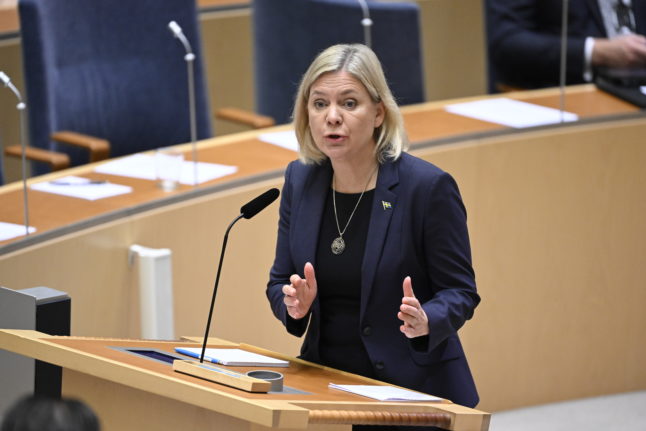For the second successive Sifo survey, which is published by the Svenska Dagbladet (SvD) daily, the Alliance claimed an absolute majority with 51.7 percent of the vote, with the centre-left trailing with 42 percent, an increase of almost 2 points.
The Alliance has Sweden’s female voters to thank for the boost, SvD reported, with the centre-right enjoying the backing of 52.8 percent of the female voters, to 43.9 percent for the centre-left, a reverse of the situation in the spring.
“Generally speaking women are interested in welfare issues, but the Red-Greens have not managed to get the election campaign to be about welfare,” said Toivo Sjóren at Sifo to SvD.
The Social Democrats received the backing of 28.7 percent, a new record low and around six percentage points below their election result in 2006. In Stockholm the party has the support of just over 18 percent, the poll shows.
“We are no so close to the election that it is now just the election result that matters. We know that we have a lot of hard work ahead of us,” said Social Democrat party secretary Ibrahim Baylan to news agency TT.
Baylan attempted to play down the importance of the opinion polls and the latest Sifo indicating plunging support for the Social Democrats and the Red-Green coalition.
“Opinion surveys are all very well, but it is the Swedish people who decide this on September 19th,” he said.
Baylan remained upbeat, latching on the high number of undecided voters.
“We have a large number of television debates during the week. They will be decisive for all who have not yet decided. It is set to be an intense week, with full focus on election day,” he said.
Red-Green coalition partners, the Left and Green parties remained higher than the election result of 2006, with 6.2 and 7.1 percent respectively.
The Centre Party remains a cause of concern for the Alliance coalition, with 4.8 percent in the Sifo poll Maud Olofsson’s party are perilously close to the four percent threshold for parliamentary seats.
The Christian Democrats meanwhile bounced back 2.2 percentage points to 6.7 percent.
The far-right Sweden Democrats increased by 1 point to 4.6 percent. While this is sufficient to claim parliamentary seats, the party would not hold the balance of power.
Sifo/SvD’s poll results are based on interviews conducted with 1,435 people from September 6th-9th.
Sifo poll results, September 10th 2010 (changes since September 3rd 2010 in parentheses)
Government
Moderate Party 31.4 (-0.3)
Centre Party 4.8 (-1.9)
Liberal Party 8.8 (+1.6)
Christian Democrats 6.7 (+2.2)
Total: 51.7 (Election 2006: 48.2)
Opposition
Social Democrats 28.7 (no change)
Left Party 6.2 (+0.9)
Green Party 7.1 (-2.6)
Total: 42.0 (Election 2006: 46.1)
Sweden Democrats 4.6 (+1.0)
Others 1.9 (-0.8)


 Please whitelist us to continue reading.
Please whitelist us to continue reading.
Member comments